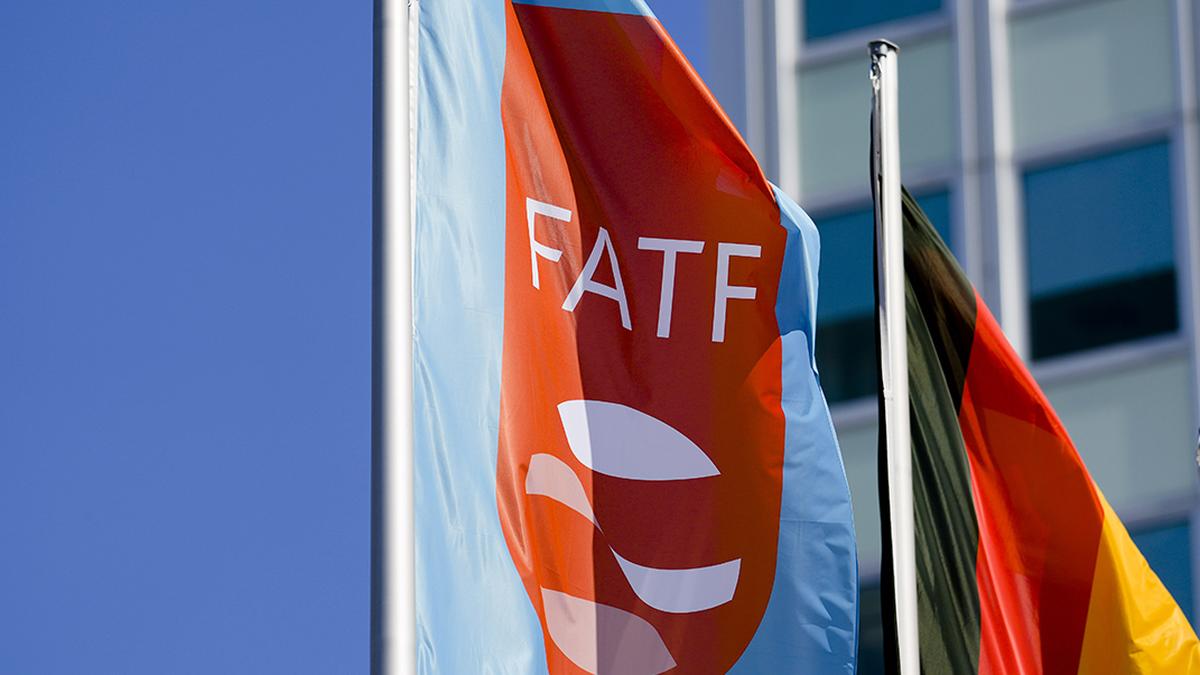FATF in its mutual assessment report acknowledged that India faces a disparate range of terrorism threats. File.
| Photo Credit: AP
The Financial Action Task Force (FATF), which adjudged India to have attained a high-level of technical compliance across all its recommendations, has in its mutual assessment report noted that Indian agencies have seized significant amounts from proscribed terrorists under the Unlawful Activities (Prevention) Act, and assets from terror financing (TF) and money laundering (ML) investigations.
Acknowledging that India faces a disparate range of terrorism threats, it said they could be summarised as theatres associated with the Islamic State or Al Qaeda-linked extremist groups active in and around Jammu and Kashmir, directly or via proxies/affiliates, as well as other separatist movements in the region; other Islamic State and Al Qaeda cells, their affiliates, or radicalised individuals; regional insurgencies in the North-East and North of India; and left-wing extremist groups.
“The NIA (National Investigation Agency) and the ED (Enforcement Directorate) have skilled and highly experienced investigators and in-house prosecutors to conduct complex financial investigation and identify money trails domestically and abroad, to support the investigation and prosecution of terrorist activity and TF [terror financing]. The State police are empowered to investigate State-wide TF offences, and there are specialised CT (counter-terror) authorities at the State level that investigate TF offences,” it said.
The assessment team found that India has in place a legislative framework for the implementation of targeted financial sanctions.
“ED’s expertise in dealing with complex financial evidence as well as tracing and seizing assets relating to TF domestically and pursuing assets abroad… is valuable in NIA’s pursuit of TF. Between 2018 and 2023, 48 TF cases also have been referred to ED to investigate the ML aspect since TF is a predicate offence for ML,” it said.
During the check period, between 2018 and October 2023, India initiated prosecutions against 1,530 persons for TF offences. “For NIA, the data shows that prosecutions were pursued for all suspects investigated for TF and that approximately a third of terrorism cases result in TF investigations and prosecutions. However, for the State police, although they investigated 60% of TF cases in India, only 28% of TF prosecutions were initiated, suggesting that their CT wings would benefit from enhanced capacity and resourcing,” said the FATF.
‘Many trials remained unconcluded’
Between 2018 and October 2023, the cases against 98 persons were concluded and 1,432 are pending. The report observed that a significant number of trials remained unconcluded since 2018.
“The bottleneck as evident since 2019 appears to be attributed to the long court processes to hear terrorism and TF cases both for cases heard by the special courts (despite the increase in number of specialist courts since 2021) as well as TF cases heard at the State level, with frequent and long adjournments built into the trial process…,” it said, adding that there were plans to provide in legislation measures to ensure that court cases were concluded in a timely manner.
The report listed certain demonstrative TF cases. Among them are the Hurriyat case (2017), Mangalore Blast case (2022), Popular Front of India case – in which money trail was linked to 300 accounts in 22 branches across 11 banks in different parts of country and over 150 people were arrested; – and terror financing involving Maoist activities.
“NIA and ED have access to a wide range of financial information and intelligence to support their TF investigations. They can obtain bank account information through FIU-IND (Financial Intelligence Unit-India) or directly from banks without the need for a court order. Where more complex financial investigation involving tracing and seizing of property is required for TF, ED is able to initiate a ML investigation… to draw upon their resources and expertise and extended seizure powers,” the report observed.
Published – September 21, 2024 02:30 am IST
